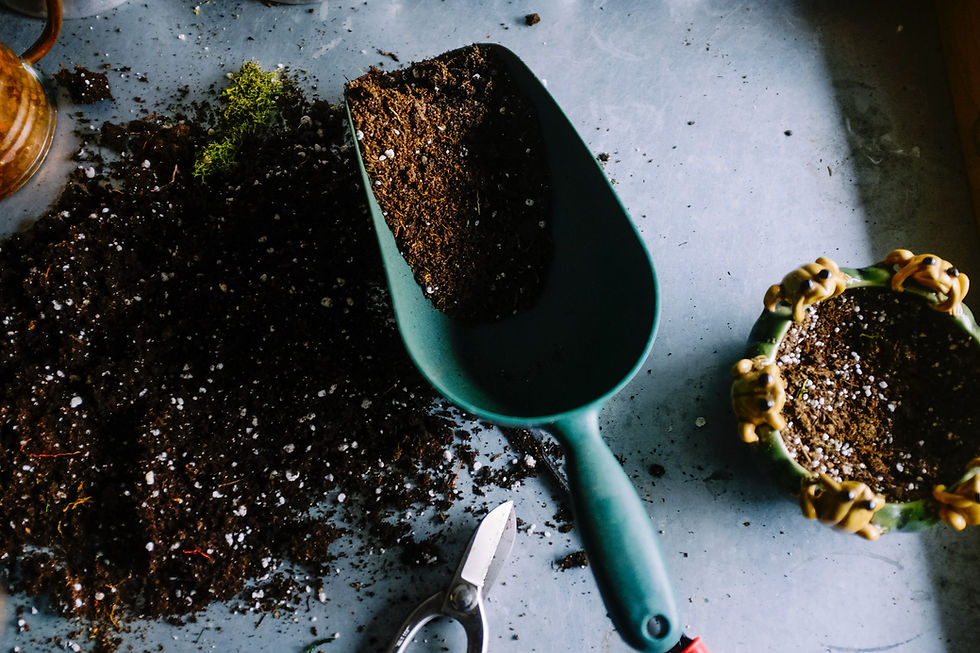God Made Dirt, And Dirt Don't Hurt
- Apr 18, 2021
- 2 min read

I've heard this phrase so many times as a kid. It was always before someone dropped food on the floor and still wanted to eat it. In addition to occasionally ingesting dirt covered food, we also spend time outdoors playing in dirt. Ironically, we were never sick and food allergies were unheard of. The Centers for Disease Control & Prevention reports that the prevalence of food allergy in children increased by 50 percent between 1997 and 2011. Between 1997 and 2008, the prevalence of peanut or tree nut allergy appears to have more than tripled in U.S. children. I've attended many farm to school workshops that tote the health benefits of gardens in school. Most of them conclude that school gardens help reduce obesity and increase physical activity. But none of them talk about the other health benefits of being exposed to dirt.

The Journal of Allergy and Clinical Immunology found that Amish children who grew up on farms in northern Indiana had significantly lower rates of allergies than non-farm populations. The article called it "the farm-effect" and has been documented in farm populations across North America and Europe, with a 50 percent reduction in allergies in farm children. The idea is an extension of the decades-old hygiene hypothesis, developed in the late 1980s and ’90s as researchers came to realize that living in a modernized world where bacterial exposure is limited was linked with hay fever and other disorders characterized by immune dysfunction.
I am not implying that everyone should live on a farm (although that is my life long dream, along with marrying John Stamos) in order to boost their immune system. What we can do, we can do is allow ourselves to get our hands dirty. Plant what you can, where you can. Spending time outdoors also increases our levels of Vitamin D. Vitamin D allows our bodies to absorb minerals and vitamins more efficiently.
If you would like to take control of your health by utilizing the power of herbs, nutrition, and mindful practices,
For future reading:
.jpg)






Comments